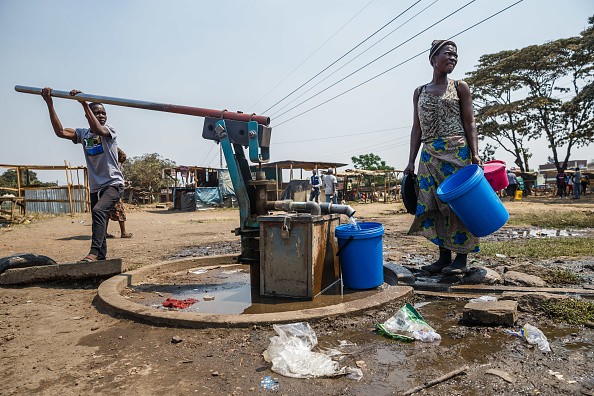The health authorities reported that the deadly cholera outbreak has returned to Harare, Zimbabwe, with more than 8,000 suspected cases after years and confirmed more than 150 deaths since February.
The cholera outbreak has been affecting communities in southern African countries with deadly consequences caused by the terrible sanitation conditions in the poor communities, neglected townships, and neighborhoods in Zimbabwe.
Cholera Outbreak Returns in Zimbabwe

The Zimbabwe's Health Ministry reported 8,087 suspected cholera cases and 1,241 laboratory-confirmed cases. The report stated 152 suspected cholera deaths and 51 laboratory-confirmed deaths.
Since late October, Zimbabwe has received reports of more than 500 cases weekly. February cases have the highest rate since it struck Zimbabwe again, as the International Federation of Red Cross and Red Crescent Societies reported.
The fatal bacterial disease has been killing hundreds of the young and the old in Zimbabwe. Catherine Mangosho, a grandmother of a 3-year-old grandson, feared that their family might catch the disease and protected his grandson by locking him in the house for hours.
Mangosho noticed children barefoot playing street soccer outside her house. The ball they use in soccer is made from plastic bread wrappers and frequently plunges into ponds of sewage, and the children pick up the ball and continue the game.
Mangosho said that they buried a boy who was playing soccer in the streets of their area last week as he fell sick overnight and died at the hospital, and confirmed that it was cholera.
The Red Cross Federation said that the major causes of the cholera outbreak were poor hygiene, lack of awareness, and religious practices, in which self-proclaimed prophets commanded sect members to use prayers and items such as holy water rather than seek medical treatment.
Medical Emergency in Africa
The World Health Organization reported that cholera cases were rising across Africa amid a global surge. WHO confirmed 21% of patients and 80% of deaths across the globe from 2014 to 2021 in Africa.
The outbreak spread throughout urban to rural areas, which put over 10 million people at risk. Health Minister Douglas Mombeshora said the cholera cases have affected the country's ten provinces.
He said that cholera patients had been lining up in a special tent and were given a cup of rehydrating sugar and salt for treatment.
Mombeshora said that the rainy season was approaching, and the conditions caused a scare for them as seven people died in Kuwadzana.
Shopping centers in Africa can be seen with flies hovering over heaps of uncollected trash, and the raw sewage from burst pipes overflows in the streets and the resident's homes.
The government has failed to provide clean water, and the authorities see the residents go for months without tap water, forcing them to dig shallow wells and boreholes that have also been contaminated by sewage.
Joyleen Nyachuru, a water, sanitation, and hygiene officer with the Community Water Alliance non-governmental organization and also a resident of the Glen View township, said that she was anxious as the 2008 cholera outbreak might repeat in Africa when more than 4,000 people died in Zimbabwe.
© 2025 HNGN, All rights reserved. Do not reproduce without permission.








